 Iran’s Attack on Israel
Iran’s Attack on Israel
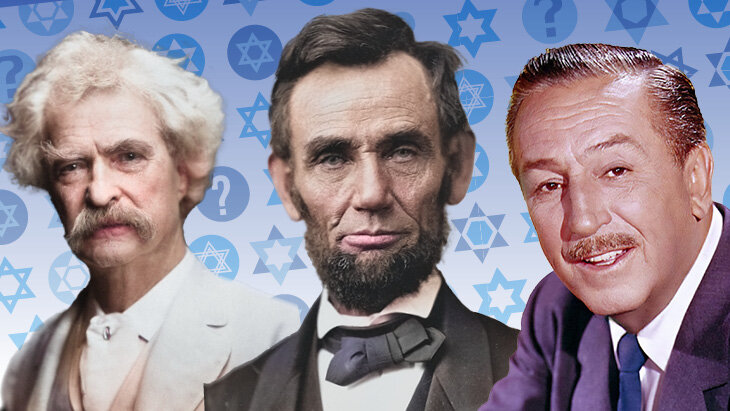

7 min read
Take the second quiz and see if you know all the answers.
Sometimes it’s difficult to differentiate between what’s a blessing and what’s a curse. Can you guess which of the following six historical figures were good for the Jews and which ones weren’t?
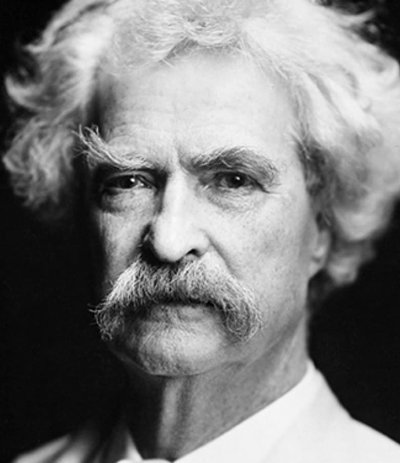
Author Samuel Clemens (aka Mark Twain) wrote some of the most memorable stories you were forced to read in middle school. His writing satirized racial prejudices of the time. But was his writing good for the Jews as well?
Answer: Good, but beware of unintended consequences.
Growing up in Hannibal, Missouri, Twain adopted the same antisemitic attitudes of the town. One of his early articles was a satirical and unflattering essay about Jewish coal dealers for the Keokuk, Iowa newspaper. However, around the Civil War, Twain’s attitude changed after experiencing some heroic Jewish actions personally. Then in 1909 his daughter Clara became engaged to a Russian-Jewish pianist, Ossip Gabtilowitsch, who Twain was quite impressed with.
In 1879, Twain wrote a piece praising Jews, perhaps too much so. “Jews have the best average brain of any people in the world… There are no Jewish beggars, no Jewish tramps, no Jewish ditch diggers, hod-carriers…” These exaggerated exaltations ended up fueling antisemitic tensions rather than soothing them.
Twain continued to write, defending the Jews, but it did little to change public perception. The most notable example was his 1898 Harper’s Magazine article “Concerning the Jews.” The lengthy essay acknowledges that Jewish people are an oddity, few in number but achieving great feats, "His contributions to the world's list of great names in literature, science, art, music, finance, medicine, and abstruse learning, are also way out of proportion to the weakness of his numbers." His praise did little good at the time, but at least he was willing to go on the record as a witness to their unfair persecution as well as their extraordinary accomplishments.
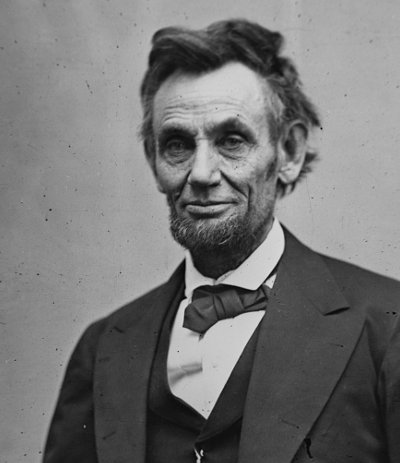
The 16th president of the United States is hailed as a hero for a multitude of reasons, including winning the Civil War and enacting the Emancipation Proclamation. But how was he towards the Jews of the 19th century?
Answer: A good friend!
To put it simply, Honest Abe had a superlative relationship with the Jews. In addition to many personal Jewish friends, he was outwardly opposed to antisemitism. It is even said that one of his closest friends, Abraham Jonah, a Jew, encouraged him to run for the presidency. Interestingly, his presidential run was one of the first times that Jews were considered a key voting bloc in the election.
While in office, Lincoln made unprecedented advances to include Jewish participation. He appointed Jews in the military to such positions as quartermaster and brigadier general. He also opened doors to allow Jews to serve as religious leaders in the military chaplaincy. Prior to 1861, federal law mandated that chaplains must be Christian. This change would pave the way not only for Jews, but for people of other faiths to be accepted in the US military for religious positions.
In 1862, Ulysses S Grant issued an order which expelled Jews “as a class” from his military district. But Lincoln quickly rescinded the order and shortly after, a delegation of Jewish leaders traveled to Washington D.C. to thank the president personally. For which Lincoln cleared time in his busy schedule.
Abraham Lincoln’s efforts to include Jews into society was greatly appreciated by the Jewish community. On the day the President died, congregants in New York’s Temple Emanu-El rose to recite the mourner’s Kaddish to honor their fallen Commander-in-Chief.

The communist Cuban president is one of the most controversial figures in modern history with some praising him as a “champion of the people” while others condemn him as a “power mad dictator.” How was he to the Jews?
Answer: Not so good.
When Fidel Castro first rose to power, he was rather sympathetic to the Jews, criticized Holocaust denial, and supported Israel. In 1963, he declared three days of national mourning for the death of Israeli President Itzhak Ben Zvi and Cuba was only one of the two Soviet-influenced nations to didn’t sever ties with the Jewish nation after the ‘67 war.
However, it wasn’t long after that Castro abruptly changed his tune. He was a fervent supporter of the PLO and their terrorist actions. Without any warning, the country cut all diplomatic relations with Israel in ‘73. Then just two years later, Cuba officially sponsored the UN’s “Zionism is Racism” resolution and was one of the nations who resisted the resolution’s repeal in ‘91. Even after stepping down from power, he still railed against the Jews describing Israel’s Operation Protective Edge as the “Palestinian Holocaust in Gaza.”
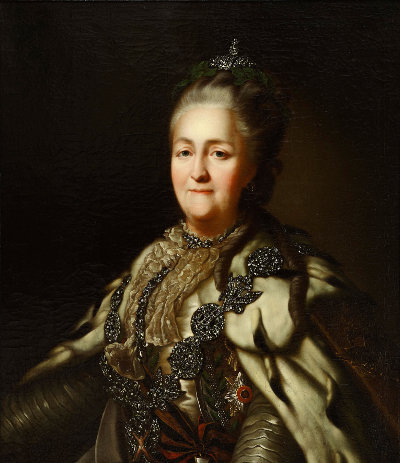
Catherine II reigned as the empress of Russia from 1762-1796 under which Russia experienced the enlightenment and a renaissance. But was her rule as great for the Jews as it was for Russia?
Answer: Not Great.
When Russia annexed the Polish-Lithuanian Commonwealth in 1772, an influx of Jewish merchants settled the region. Competing merchants incited antisemitic complaints labeling them frauds and liars. What was Catherine the Great’s response? Starting in 1785 Catherine the Great decreed that Russian Jews were no longer considered Russian citizens, but were relegated to the status of foreigner.
Then in 1791, she restricted the entire Jewish population to a tract of land known as the Pale of Settlement. Though large in size, Jews were barred from living in desirable areas and thus were left to live in poverty stricken shtetls. Decrees in 1792 and 1794 further barred Jews from merchant guilds and doubled their taxes.
Though the monarch is regarded by history as an idealist, a reformer, and an enlightenment thinker, the few favors she did for the Jews was greatly outweighed by the restrictions, oppression, and stigmas they had to suffer.
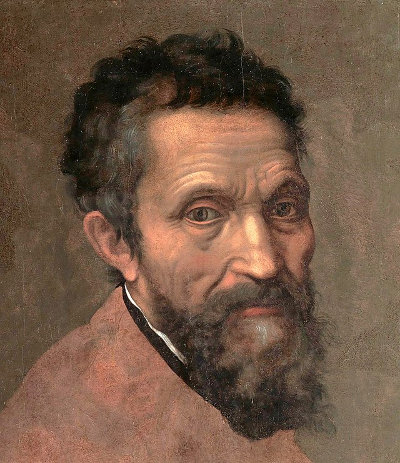
Italian Renaissance painter and sculptor, Michelangelo changed the world with his scripture of David and his masterpiece of the ceiling of the Sistine Chapel. But were his depictions of Jewish figures good for the Jews or bad?
Answer: Surprisingly Good
Artistic choices such as Moses being sculpted with literal horns and David’s anatomy being uncircumcised have led to criticism of Michelangelo’s work as being antisemitic. However, upon deeper inspection, it was revealed that Michelangelo employed secret messages that were actually advocates for change in the caustic relationship between Christianity and Judaism.
Before painting the Sistine Chapel, Michelangelo was quite familiar with deep concepts of the Jewish mysticism known today as Kabbalah. With the focus of the ceiling being the Creation story in Genesis, and not the birth of Jesus, Michelangelo sought to remind the Vatican that the roots of Christianity is the Torah which was given to the Jewish people. Other hidden images in the mural depict more subtle messages meant to influence change, subtly communicated for centuries to worshipers, art historians, and tourists from around the world.
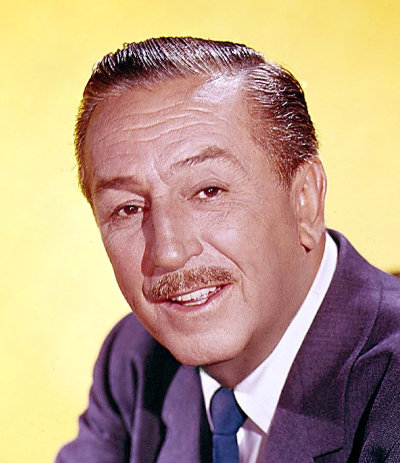
The creator of arguably the most lucrative and influential entertainment enterprise in history, Walt Disney was often accused of being a rampant antisemite. Was he as bad as they say?
Answer: Actually pretty good!
Though there were some troubling cartoons in the early half of the 20th century, the truth is that much of his “antisemitism” was attributed to the dealings he had for business, i.e. his associations with the very antisemitic Motion Picture Alliance of the time.
At his company, Walt Disney hired plenty of Jews, most notably the Sherman Brothers who wrote all the music to Mary Poppins, Winnie the Pooh, Jungle Book, and the supremely annoying, “It’s a small world after all.” Regardless of what his personal feelings may have been, the company bearing his namesake became a brand making strides to uphold inclusivity, acceptance, and tolerance. In the years after Walt’s death, Disney has been run by Jews at the highest levels by such big wigs as Michael Eisner, Jeffrey Katzenberg, Bob Iger, Dana Walden, and more!
